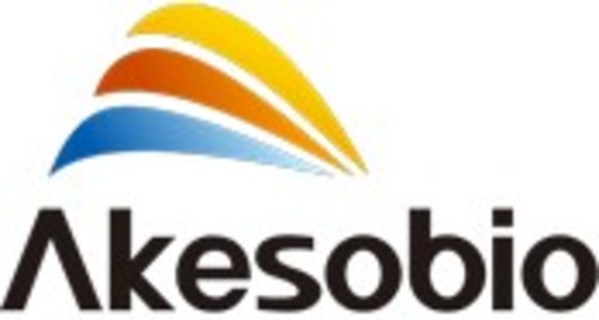 |
HONG KONG, April 14, 2022 /PRNewswire/ — Akeso, Inc. (9926.HK) ( “Akeso” ), a China-based biopharmaceutical company focusing on the development and commercialization of innovative therapeutic antibodies for Oncology & Immunology, announced the publication of preclinical results of its PD-1/LAG-3 bi-specific antibody (AK129) at the American Association for Cancer Research (AACR) Annual Meeting 2022. Both in vitro and in vivo preclinical data demonstrated that AK129 has enhanced T cell activation activity with robust anti-tumor activity compared to PD-1 and LAG-3 antibody combo.
Abstract: AK129, an anti-PD1/LAG-3 bi-specific antibody for cancer therapy
https://www.abstractsonline.com/pp8/#!/10517/presentation/17739
AK129, a bi-specific antibody, acts by co-blocking two immune checkpoint molecules co-expressed on T cells, PD-1 and LAG-3. Signaling through PD-1/PD-L1 exerts major effects on cytokines production by T cells, inhibiting the production of IFN-γ and IL-2. LAG-3 is a cell surface molecule expressed on effector T cells and Tregs, which plays a vital role in regulating T cell function to promote tumor immune escape. LAG-3 and PD-1 mediate different signaling pathways, but they may act synergistically to cause effector T cells inactivation and exhaustion. AK129 is being investigated as a cancer immunotherapeutic agent.
Results and observations from AK129’s preclinical study support the development of AK129 as a cancer immunotherapeutic agent in the clinic:
- AK129 showed good antigen binding to PD-1 and LAG-3. Coinsidently, AK129 potently inhibited the binding of LAG-3 to its ligand MHC-II, and the binding of PD-1 to its ligand PD-L1, thus blocking downstream immune suppression.
- At the individual target level, AK129 demonstrated a similar PD-1 blocking activity compared to penpulimab, and similar LAG-3 blocking activity compared to relatlimab. Importantly, at the whole cell level, the enhancement effect of AK129 is stronger than the combination of penpulimab and relatlimab, as evidenced by significantly higher level of IL-2 and IFN-γ secretion from PBMCs.
- AK129 showed favorable anti-tumor activity in BALB/c-hPD1/hLAG3 mice CT26.WT tumor model, with tumor growth inhibition values reaching 99.27% and 89.48% in high dose (20 mg/kg) and low dose (4 mg/kg) group of AK129, respectively.
Reference
[1] Kraman M, Faroudi M, Allen N, Kmiecik K, Gliddon D, Seal C, Koers A, Wydro M, Winnewisser J, Young L, Tuna M, Doody J, Morrow M, Brewis N. FS118, a bispecific antibody targeting LAG-3 and PD-L1, Enhances T-Cell activation result_x0002_ing in potent antitumor activity. Clin Cancer Res 2020; 26:3333–3344
[2] Maruhashi T, Sugiura D, Okazaki IM, Okazaki T. LAG-3: from molecular functions to clinical applications. J Immunother Cancer. 2020 Sep;8(2):e001014. doi: 10.1136/jitc-2020-001014. PMID: 32929051; PMCID: PMC7488795. [3] Long L, Zhang X, Chen F, Pan Q, Phiphatwatchara P, Zeng Y, Chen H. The promising immune checkpoint LAG-3: from tumor microenvironment to cancer immunotherapy. Genes Cancer. 2018 May;9(5-6):176-189. doi: 10.18632/genesandcancer.180. PMID: 30603054; PMCID: PMC6305110.
![]() View original content to download multimedia:https://www.prnewswire.com/news-releases/akeso-publishes-preclinical-results-of-pd-1lag-3-bi-specific-antibodyak129at-the-american-association-for-cancer-research-aacr-2022-annual-meeting-301525625.html
View original content to download multimedia:https://www.prnewswire.com/news-releases/akeso-publishes-preclinical-results-of-pd-1lag-3-bi-specific-antibodyak129at-the-american-association-for-cancer-research-aacr-2022-annual-meeting-301525625.html
Source: Akeso, Inc.









